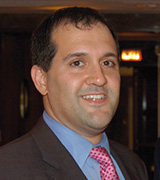- Leading HANAC: Stacy Bliagos on Community Service in New York
- The Hellenic Initiative Celebrates Record-Breaking Weekend in New York
- Building the Future: HANAC’s 53rd Anniversary Gala Honors Advocates for Affordable Housing and Community Care
- Leona Lewis: Las Vegas residency ‘A Starry Night’
- Emmanuel Velivasakis, Distinguished Engineer and Author, Presents His Book at the Hellenic Cultural Center
Time for Greece to hit the Reset Button in Relations with the Diaspora

Endy Zemenides
In an August 22nd piece in Kathimerini (Επαφή Σαμαρά με την ομογένεια), Kathimerini’s longtime U.S. correspondent Athanasios Ellis called for a more systematic and consistent method of communication and collaboration between the Greek government and the Greek American diaspora, and for it to be extended beyond New York and Washington, D.C. Having bore witness to the failures in Greece’s approach to the diaspora, Ellis makes some very important observations. He calls for Prime Minister Samaras to meet with more people throughout the diaspora. Unfortunately, this falls short of the course correction needed to reinvigorate the diaspora and put it in a position to help build a new Greece.
It is not enough to declare a desire to better utilize the diaspora, or to have a single figure (the Prime Minister) make a favorable impression. A “reset” button must be hit and a radical course correction needs to be made:
(1) Start with killing SAE (the World Council of Hellenes Abroad). SAE never worked, period. The organization may be able to point to a few victories, but on core issues of Hellenism, SAE was an abject failure. Indeed, in the U.S., competition over leading/controlling the organization diverted the energies and capabilities of diaspora figures like Andy Athens, Chris Tomaras and Ted Spyropoulos who certainly could have achieved more with the time and resources they devoted to this quixotic exercise.
Inexplicably, the present government – from its first days – prioritized resuscitating SAE. The former Deputy Foreign Minister for Overseas Hellenism, Konstantinos Tsiaras, spent months lobbying several “fresh faces” in the U.S. to partake in this exercise. No takers whatsoever.
It is time for a Do Not Resuscitate order on SAE, but new Foreign Minister Venizelos just put his guy in there. Please spare us Mr. Foreign Minister. The investors you need are not going to go through SAE or this Deputy Minister. Your most forceful and effective advocates in D.C. are not going to go through SAE or this Deputy Minister. Time is not your friend, so stop wasting your time – and resources – as well as our time, and give the diaspora a contact with policy influence and the ability to move a joint agenda forward.
(2) Communicate with the diaspora more effectively. In the age of video-conferencing, Skype and social media, and the fact that the diaspora travels to Greece consistently, the Prime Minister, Foreign Minister, or any other Greek official does not have to even travel to kick off new relations with the diaspora.
Greek politicians are eager to use American campaign tactics, so how about consistent conference calls or online town halls between the diaspora and members of the government? Come up with a strategy an agenda for diaspora relations and instruct your Ambassador and Consul-Generals to carry out more consistent meetings in accordance with said strategy and agenda – as opposed to the “let’s meet when things pop-up” or “we’ll meet mostly with the squeaky wheels” approach that is predominant today.
Better cooperation with Greek-American press is also a must. The diaspora – especially those that can’t read Greek effectively – are searching for information. The Greek government should take advantage of the publishers, journalists, and radio and television hosts that have built a relationship with an audience in the diaspora to disseminate information and make sure that the diaspora is better informed about Greece.
(3) Don’t limit your audience to diaspora organizations. Five years ago, the previous New Democracy government (of Prime Minister Karamanlis) sent the Secretary General of Information – Panos Livadas — to the U.S. During that trip, he visited Chicago. At the time, Obama headquarters was in Chicago, the Illinois State Treasurer and Cook County Treasurer were Greek-Americans, Chicago’s business newspaper (Crain’s) had a Greek-American on staff, Chicago had firmly established itself as the U.S.’s #2 financial center (after New York), and a major hotel brand – Hyatt – whose ownership had invested in Greece was headquartered in Chicago.
Besides a very brief (and solely introductory meeting) with IL State Treasurer Alexi Giannoulias, none of the others described above made Livadas’ schedule. Of course, he met with Andy Athens, Ted Spyropoulos, Chris Tomaras, Demetri Kozonis and Enosis (Federation of Hellenic-American Organizations) all separately. Very productive use of time.
Although Ellis is correct in suggesting that the Prime Minister visit with a wider array of diaspora groups, his suggested “targeting” is as lacking as the aforementioned Livadas itinerary to Chicago. Sticking with the Chicago theme, Ellis notes that the Prime Minister should visit the Windy City because it is home to the National Hellenic Museum. No mention of investors (Greek and non-Greek) in Chicago. No mention that Chicago is home to two former presidential chiefs of staff (Mayor Rahm Emanuel and William Daley) with tremendous influence in policy, media and business circles. No mention that America’s oldest foreign policy organization – the Chicago Council on Global Affairs (90+ years old, with the former U.S. Ambassador to NATO holding the presidency and First Lady Obama on the board of directors) – is there.
Unfortunately, Greece’s governing class – both in politics and in media – are both working off of broken models in diaspora relations. Doubling down on a limited number of individuals and institutions at a time when the ties based on immigrant status are fraying will only lead to a “distant cousin” type of relationship between Greece and its diaspora. The reset cannot come soon enough.











0 comments